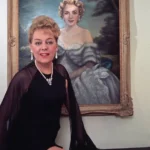When I read classics from American Literature, I am always hyper-aware of the way women are portrayed. Largely due to the fact that American Literature is deeply entrenched in a male perspective, which often means men are the main characters, and the women in the book are there as supporting characters. While either a purposeful choice reflecting societal values or the result of deeply internalized misogyny that they do not even think twice when making these decisions, the underlying tone remains. However, in the case of The Great Gatsby, Fitzgerald has deeply complex female characters; the line a beautiful little fool is still relevant to this day, and coming from a female character is what made me love this book in high school.
My favorite character from The Great Gatsby will always be Daisy, and it is because she quite possibly might be the most self-aware character in the entire book. I believe Daisy is keenly aware of her selfishness, a trait her character is often condemned for. However, I beg the question, how else is she supposed to be?
Women could not own real estate, a bank account, and women about three years prior to the book’s setting got the right to vote. The time period is extremely confining for women and the realities they are in. Women, in order to have a life that was bearable in the 1920’s, had to be deeply selfish. If a woman were selfless in the 1920’s life would trample all over her.
This is why Daisy is my favorite character; she attempted not to get trampled on. She married for money to secure her status; she would subtly and at times overtly circumvent Tom and what he wanted her to do, and even considered leaving him. A very rare thought process for a woman of her time period. Daisy knew if she was not selfish, not only would she not be happy, but she would be discarded.
Was Daisy a good person? No, but seriously, who was in this book? Were her perspective and actions understandable in context? Yes.
Women should be more selfish, in my opinion; women should be louder, women should take up more space. While Daisy was keenly aware of her position in life and would still conform most of the time, she took up space, she subtly spoke her mind, and she did what was best for her in the situations she was in.
If she had chosen differently and left Tom for Gatsby, Gatsby still would’ve died, or quite possibly she would’ve been killed as well. When thinking about the chain of events in the book, can we truly judge Daisy for leaving? Her alternative was to lose her money and status that she already worked hard to secure, to then end up alone and possibly dead. Who would choose that for themselves? I know I wouldn’t.
The first time I read the book, Daisy was my least favorite character. I find myself often condemning people who are selfish, and she never took accountability, which solidified my distaste for her. However, when I watched the movie and reread the book on my own time, I thought to myself, just because Gatsby bought the house across from her, pined for her for years, it did not make him entitled to her. Nothing makes someone entitled to anyone else, and Gatsby through his entitlement believed if he became rich and obsessed over Daisy he would get her, and upon this realization I was glad he never did again, Daisy is not an object of desire she is a human being independent from the men in her life and had the right to choose whatever she wanted with her life.
Daisy was far from perfect, but everyone else in The Great Gatsby is just as flawed. Her choices, while selfish, are also deeply human, shaped by a society that was designed to trap women. Rather than condemning Daisy, I see her as a woman who refused to be trampled by the expectations of her time. Her decision to stay with Tom was not an act of cowardice, but an act of self-preservation in a world where women’s happiness, safety, and security depended on the men they married.
I think the continuing distaste for women can challenge the reader to examine why women’s choices are judged more harshly than men’s, and to celebrate the courage it takes to take up space in a world that would rather women stay small.





Comments by Piper Rolston